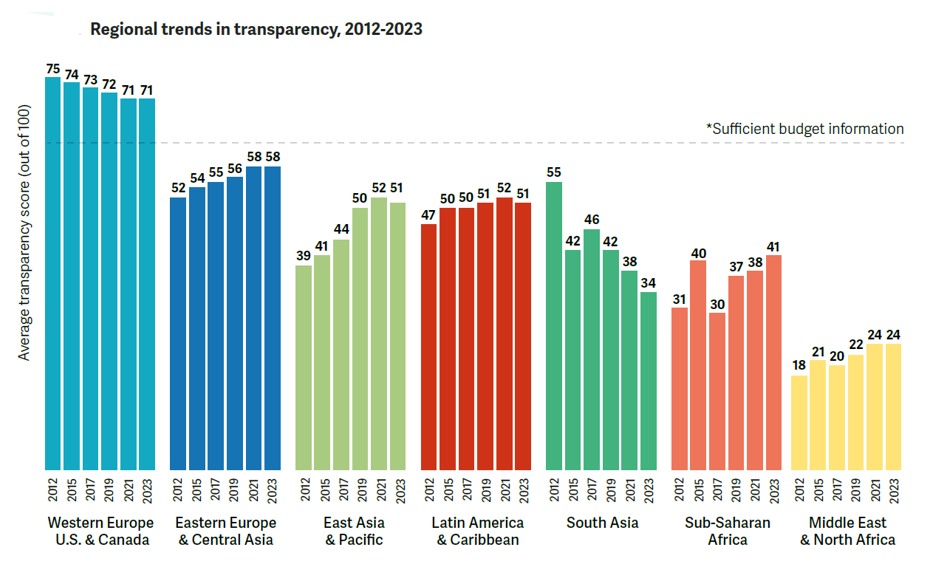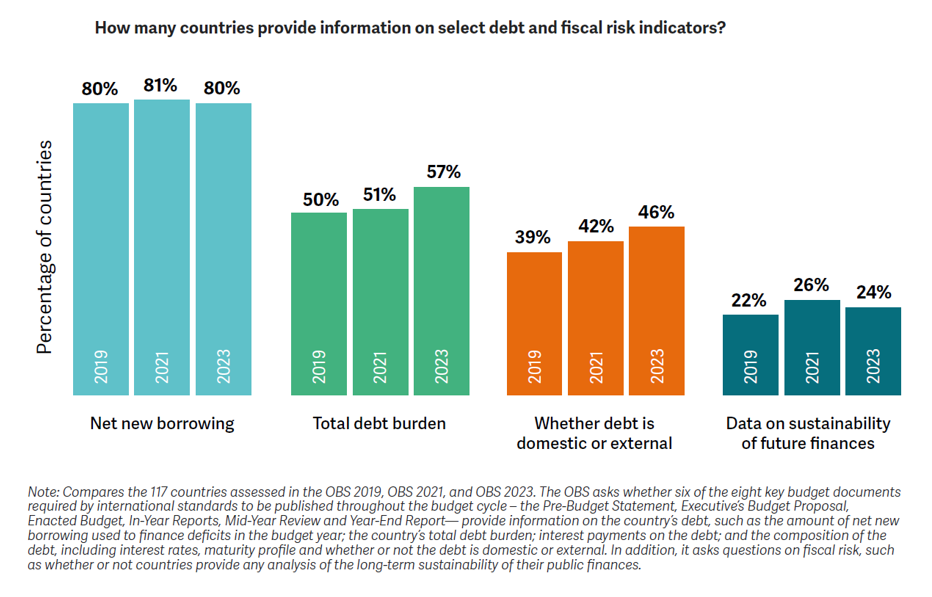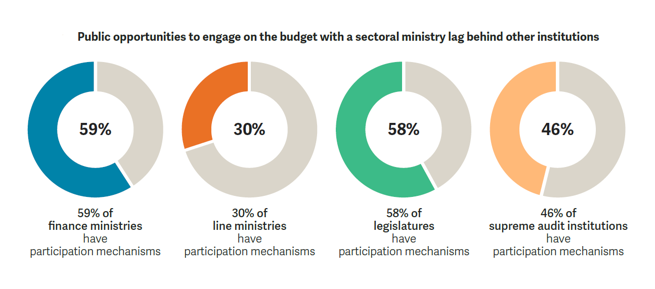Open Budget Survey finds countries are not transparent enough on debt and social spending
Amid historic levels of crippling global debt, the Open Budget Survey finds that countries are not sufficiently transparent and accountable about how they are managing their debt or spending on important social sectors, like health, sanitation and other services.
"Despite modest gains in this latest Open Budget Survey round, governments are not providing enough information and opportunities for engagement on how they are managing debt and executing budgets in later stages of the budget process. These are two key areas that impact whether governments can effectively deliver reliable, quality healthcare, sanitation, and other public services," said Austin Ndiokwelu, Director of Policy and Global Advocacy at the International Budget Partnership.
This latest round of the survey found a modest one-point increase in global budget transparency scores compared to the previous round. Nevertheless, regional trends show two stories—one of sustained progress and one of downward peril. Since 2012, East Asia & the Pacific and Sub-Saharan Africa have had the steepest increases over time. Their progress, along with that of Eastern Europe & Central Asia and Latin America & the Caribbean, contrast with a significant fall over time in South Asia, stagnation in Western Europe, U.S., & Canada, and continued low performance in the Middle East & North Africa (albeit with improvements).

Major conflicts and other factors contributed to drops in the publication of two key documents—Citizens Budgets and In-Year Reports. Citizen Budgets are a more accessible version of the budget that everyday people can engage with. In-Year Reports are a perfect opportunity to assess whether countries are underspending or overspending compared to their initial budgets on social programs and other sectors that are important to everyday people.
We also found that governments could be more accountable about how they are managing debt and the longer-term ramifications of their debt on their finances. Providing more space for public scrutiny of this information is critical to avoid recurring debt crises. Only about half of countries surveyed provide data in their budget proposals on their total debt burden. And less than a quarter offer information on the long-term sustainability of government finances. Even fewer - 11 percent—include a projection of financial sustainability in their Executive Budget Proposal that covers a period of at least 10 years.

Worryingly, legislative oversight has steadily declined over the last two survey rounds, falling three points from its pre-COVID pandemic mark. The pandemic provided an excuse for many executive governments to sidestep the legislature in its budget practices and legislative oversight practices have not bounced back since.
Participation practices are still nascent, although 83% of countries have at least one mechanism for the public to engage in the budget process. Importantly, line ministries have much fewer spaces for people to have a say on sector budgets. Less than a third of line ministries invite people’s input into sector budgets, compared to a little under three-fifths of finance ministries and a little under three-fifths of legislatures. This is a reform opportunity as line ministries make important decisions around social spending that directly impacts people’s lives.

"Engaging the public is a winning proposition," said Ndiokwelu. "The budgetary process offers many opportunities for governments to share information about public resource decisions they are making and to seek community generated evidence that can help them make better decisions that reflect people's priorities. This can help restore the public's trust in government's ability to deliver economic dividends and improve people's lives."
The Open Budget Survey is the world's only independent, comparative assessment of transparency, oversight and participation in national budgets. The latest round of the biennial survey assessed 125 countries, which are home to 7.5 billion people (95% of the world's population) and encompassed budgets totaling more than $33.5 trillion in spending in Fiscal Year 2022. It is conducted in partnership with local researchers, peer reviewers, and government reviewers who completed 30,000 indicators across all surveyed countries, assessing 672 publicly available budget documents and 299 participation mechanisms. To view the report and complete results visit https://internationalbudget.org/open-budget-survey/.

